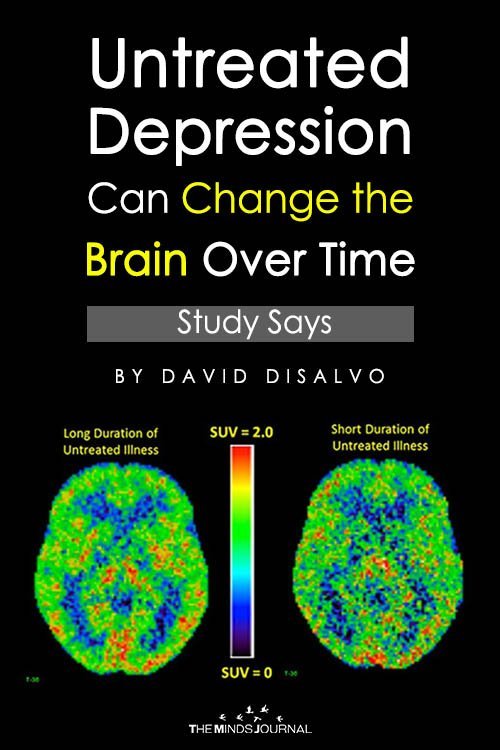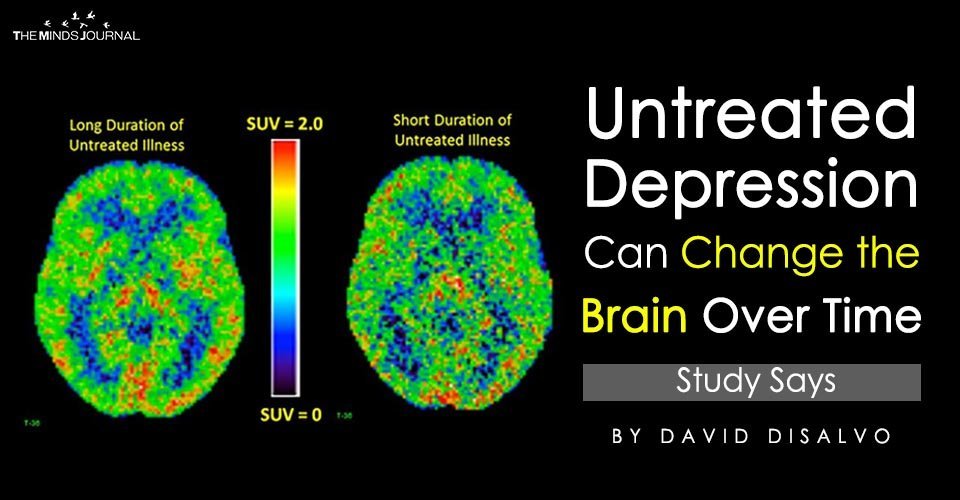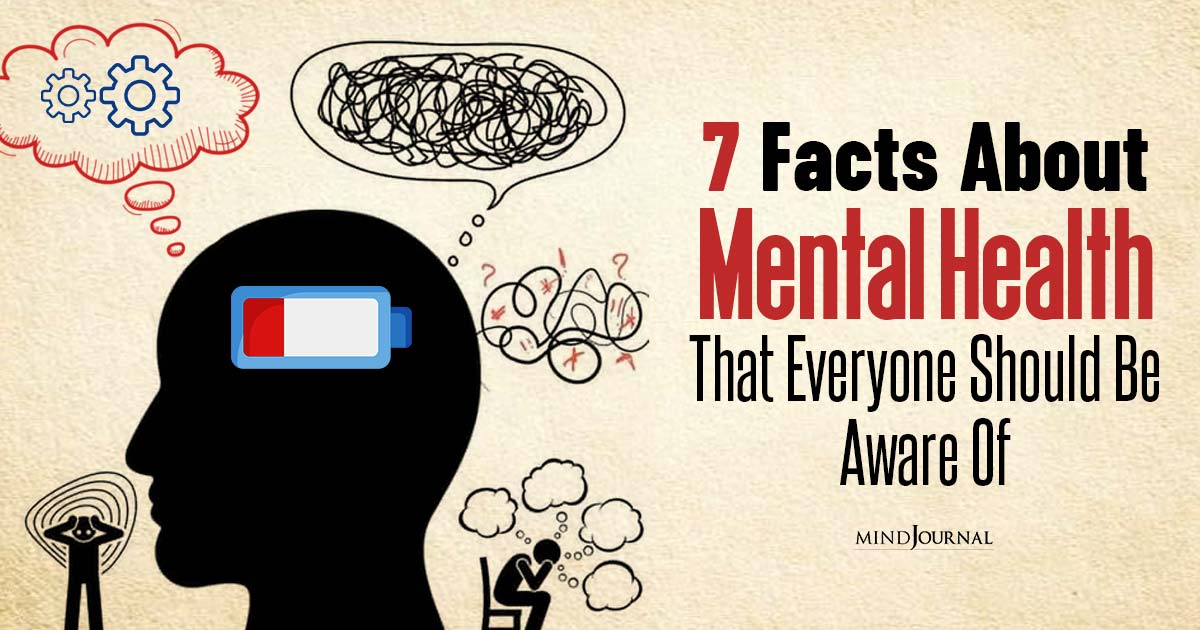Years of untreated depression may lead to neurodegenerative levels of brain inflammation.
That’s according to a first-of-its-kind study showing evidence of lasting biological changes in the brain for those suffering with depression for more than a decade.
The study findings are from the same research team that originally identified a link between brain inflammation and depression. Along with subsequent research, the findings have started to change the thinking about depression treatments. Evidence is increasingly pointing to the possibility that in addition to being a biological disorder with immediate implications, over time depression may also alter the brain in ways requiring different forms of treatment than what’s currently available.
This was a relatively small study of 80 participants; 25 had untreated depression for more than 10 years, 25 for less than 10 years, and 30 had never been diagnosed. All were evaluated with positron emission tomography scans (PET scans) to locate a specific type of protein that results from the brain’s inflammatory response to injury or illness.
Throughout the body, the brain included, the right amount of inflammation protects us from disease and repairs us when we’re injured. But too much inflammation leads to chronic illness, including heart disease and potentially neurodegenerative diseases like Alzheimer’s and Parkinson’s.
If long-term depression results in more inflammation, the researchers expected to find more of the protein in the brains of those who’d suffered from untreated depression the longest. And that’s exactly what they found, with higher levels in a handful of brain areas, including the prefrontal cortex, the brain area central to reasoning and other “executive” functions, which is thought to be compromised by disorders like depression.
If the results hold up (via more research with more participants), this will prove to be an important finding adding evidence to the argument that depression shares similarities with degenerative disorders like Alzheimer’s, changing the brain in ways research-to-date hasn’t fully grasped.
“Greater inflammation in the brain is a common response with degenerative brain diseases as they progress, such as with Alzheimer’s disease and Parkinson’s disease,” said senior study author Dr. Jeff Meyer of the Centre for Addiction and Mental Health (CAMH) at the University of Toronto.
These findings build on a study published in 2016 showing that patients with depression had higher levels of C-Reactive Protein (CRP), another biological marker of inflammation, throughout the body than those not suffering from the disorder.
That was an observational study looking for a link between depression and inflammation (correlation not causation), but the results were significant. After adjusting for several factors, those with depression had CRP levels more than 30 percent higher than those without depression.
Read How to Ask for Help With Depression: 8 Ways To Reach Out & Start Recovering
What the research seems to be collectively indicating is that we may need to change our thinking about depression and its effects.
The evidence affirms that depression truly is a biologically based disorder of the brain, and left unchecked, it may run a degenerative course that damages brain tissue in ways similar to other neurodegenerative diseases.
All of this places greater emphasis on the need to develop more effective treatments and, as urgently, work toward removing the stigma from those suffering.
David DiSalvo writes about science, health and wellness for Forbes, Psychology Today and other publications, and is also the author of the bestselling book, What Makes Your Brain Happy and Why You Should Do the Opposite.
Reference:
The latest study was published in The Lancet Psychiatry.
Written by David DiSalvo
Originally appeared on PsychologyToday









Leave a Reply
You must be logged in to post a comment.